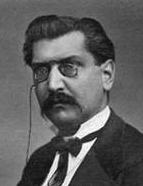

Pinheiro Chagas left behind an extensive and varied body of work, representative of the cultural and political trends of his time, in a world that Eça de Queiroz described as "official, constitutional, Bourgeois, doctrinal and serious" (Uma campanha alegre, n.d., p.11). An example of his late romantic skills is Morgadinha de Valflor (Morgadinha of Valflor, 1869), a play in five acts performed for many years and translated into several languages. It is the story of a thwarted love between a young aristocrat (Morgadinha) and a plebeian, republican painter, which ends with the death of the latter. Another example is O drama do povo (The Drama of the People, 1876), whose action unfolds during the French occupation and the royal family's escape to Brazil. This narrative would warrant accusations against its author of being a guerrilla and ‘petroleiro’ (i.e. a communist). Yet the straightforwardness with which he confronted his opponents in the various controversies in which he was involved should be noted. For example, in the serial he published in November 1865 in the Jornal do Comércio, which harshly criticised the "Coimbra School" and the position of Antero de Quental, he made it no secret that there was nothing literary in his motives, it was "simply spite" that provoked "an independence that does not come queuing up in our phalanges, nor does it swear allegiance to our generals ", referring to his master Castilho (in Alberto Ferreira, Bom Senso e Bom Gosto...vol.I, p.94).
He briefly taught in the Curso Superior de Letras language and literature program (January to October 1883), but then took office as Minister of the Navy in the last government Fontes Pereira de Melo. He returned to teaching in 1886 (the Fontes government fell in February of that year). He left teaching once again in April 1887, being replaced by Ferreira Deusdado. His Greek and Latin Literature program is not well-known. Pinheiro Chagas' background was not very different from that of most of his fellow professors at the institution: he attended university, but did not complete the program at the Polytechnic; he started his short-lived teaching career at the age of 40 (the relative majority of his colleagues did so between 31 and 40); he served as deputy before becoming a professor (like two of his colleagues) and worked as a journalist. He came from an urban middle class background.
